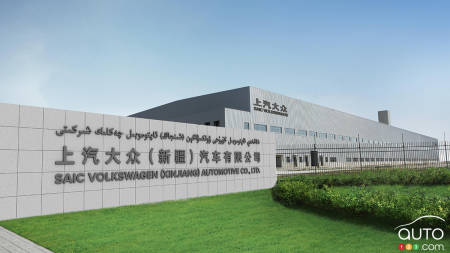It's no secret that Volkswagen is taking a close look at expenses as it seeks to get its finances in order amid slowing sales. Plant closures in Germany and job cuts everywhere hang over VW’s employees like a sword of Damocles.
The company is going to have to make some tough decisions to try and reorient its business activities. And all markets are under the microscope. The company's financial problems are already affecting plants outside Germany, and it was against this backdrop that the company announced yesterday the sale of a plant and two test tracks in China.
Volkswagen is divesting the plant it operates as a joint venture with local manufacturer SAIC in the Xinjiang region. At the same time, the German auto giant did say it’s extending its partnership with the Chinese firm, promising to introduce 18 new models by 2030. The agreement with the Chinese group has even been extended to 2040.
The first two new vehicles will be electric and are scheduled for 2026.

Human rights concerns
In addition to the financial reasons behind the company's decision, the move comes in response to other pressures that have been exerted on Volkswagen for years. As reported by Motor1, Volkswagen has long been under pressure to leave the region, where human rights organizations have revealed abuses against the local Uyghur population, including forced labour, as reported by the Nikkei Asia publication.
Both Beijing and Volkswagen have denied any abuses in the region.
Earlier this week, Volkswagen boss Thomas Schafer revealed that he could not see how the company could meet its targets without closing at least one plant in Germany. Redundancies are also to be expected, although the works council believes the company could circumvent this decision by cutting wages.
What is certain is that the coming months, if not years, will be full of challenges for Volkswagen, which will have to deal with cost increases, increasingly fierce competition and fluctuating sales in various markets, particularly where electric vehicles are concerned.





